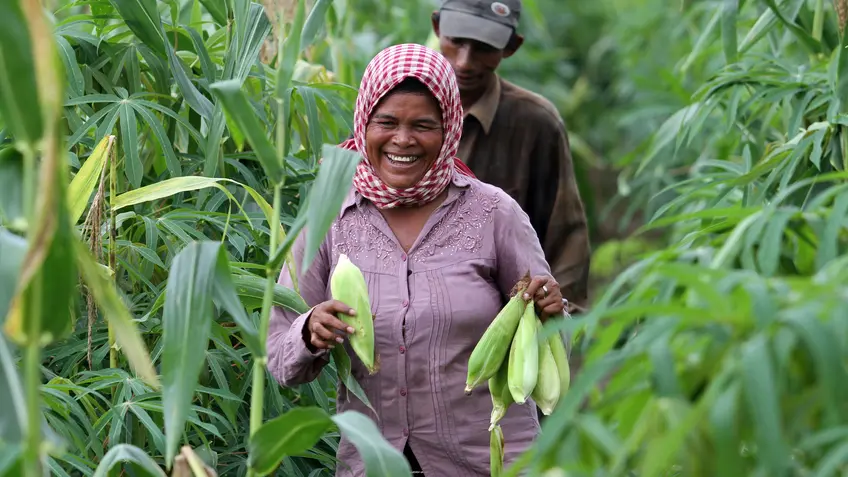PiA 2020: Promoting Gender-Responsive Climate Action
Gender is critical in climate action for two reasons. First, climate change impacts often fall differently on men and women, exacerbating existing inequities. Second, climate action can only be effective and sustainable if all of society is engaged. Over the past year, member countries sought Partnership support to advance gender equality within NDC implementation plans. While each country prioritized different needs, country support requests can be grouped into six broad categories reflecting key steps to mainstreaming gender into climate action.
In response to country needs, 34 NDC Partnership implementing and development partners met more than 140 gender-related country support requests in 12 countries. The African Development Bank, Conservation International, the European Union, the FAO, Germany (through GIZ), Sweden, UNDP, the World Bank, and WRI are collectively supporting more than three-quarters of the gender support requests the Partnership received.
Côte d’Ivoire and Uganda, in particular, have actively sought ways to respond to gender inequalities through their Partnership Plans (see How the Partnership Works section). In Côte d’Ivoire, for example, the Ministry of Women, Family and Children (Ministère de la Femme, de la Famille et de l’Enfant), along with other gender stakeholders, were regularly engaged in the NDC planning process. They now hold key roles as implementing agencies. In addition, Côte d’Ivoire’s Partnership Plan connects gender outcomes with relevant outputs, activities, and budgets, reinforcing and realizing gender-responsive NDC implementation. The country now aims to integrate gender issues into national and sectoral strategies, with a National Gender and Climate Strategy being drafted in 2020.
In Uganda, three out of five overarching outcomes in its Partnership Plan include gender considerations. For example, Uganda is aiming to develop an MRV system to monitor GHG emissions and gender-responsive adaptation and mitigation measures by collecting sex-disaggregated data. With the support of UNDP, Uganda’s Ministry of Gender, Labor, and Social Development conducted a gender analysis, developing 22 indicators that include sex-disaggregated data or highlight key gender issues. Each ministry has its own gender strategy and gender and climate change focal point, setting an example for other countries around mainstreaming gender at the institutional level. As part of the Budget Call Circular process, the Ministry of Finance, Planning and Economic Development requires sectors to mainstream gender and climate change into sectoral budget framework papers at the national and local government level.
These examples highlight possible steps countries can take to support the planning and implementation of NDCs that contribute to more gender-equal outcomes.
Key Categories of Country Support Requests Related to Gender Equality
1. Engaging gender-related agencies or stakeholders in NDC consultations and implementation
2. Undertaking country-specific gender analysis and impact assessments
3. Mainstreaming gender equality into climate plans, policies, and budgets
4. Collecting sex-disaggregated data and tracking progress through monitoring and accountability systems
5. Ensuring that men and women have access to training, capacity building, economic opportunities, and decision-making processes
6. Technical gender training and awareness-raising
For more information on the Partnership work on gender equality in climate action, see:
-
The Partnership’s Gender Strategy
-
Insight Brief on Building Gender-Responsive NDCs
This is a PiA 2020 story: Browse the multimedia version or PDF version.
